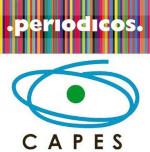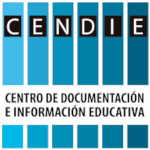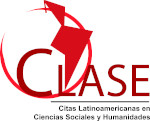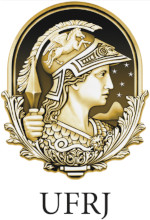Theory and practice reconnection in a technical course affected by the pandemic
DOI:
https://doi.org/10.26849/bts.v48i.916Keywords:
Remote teaching; emergency teaching; COVID-19Abstract
The experience of offering two disciplines of a subsequent technical course in Electromechanics during the COVID-19 pandemic is reported in this article. The main objective is to bring an analysis of teaching strategies adapted to Basic Electronics disciplines, using simulators, in a totally remote way, and Electronic Drives, offered in a hybrid way, between remote and face-to-face classes, observing the engagement of students in these disciplines. To this end, a theoretical reference was sought on the use of simulators and methodologies were defined for each of the disciplines, considering the context of the pandemic. As a result, a comparison is presented between the offer of the two disciplines and the methodologies used, as well as an analysis of student engagement.
Downloads
References
AUTODESK. Eagle. 2021a. Disponível em: https://www.autodesk.com/products/eagle/free-download. Acesso em 9 nov. 2021.
AUTODESK. TinkerCAD. 2021b. Disponível em: https://www.tinkercad.com. Acesso em 5 nov. 2021.
BOND, Melissa; BEDENLIER, Svenja; MARÍN, Victoria I.; HÄNDEL, Marion. Emergency remote teaching in higher education: mapping the frst global online semester. International Journal of Educational Technology in Higher Education, [s. l.], v. 18, n. 50, p. 1-24, 2021. Disponível em: https://link.springer.com/content/pdf/10.1186/s41239-021-00282-x.pdf. Acesso em: 25 ago. 2022.
COSTA, Maria Adélia; COUTINHO, Eduardo Henrique Lacerda. Metodologias ativas e currículo integrado: a travessia para as práticas pedagógicas motivadoras na educação profissional técnica de nível médio. Boletim Técnico do Senac, Rio de Janeiro, v. 45, n. 7, p. 7-20, set./dez. 2019. Disponível em: https://www.bts.senac.br/bts/article/view/792. Acesso em: 25 ago. 2022.
COUTINHO, Carlos Roberto. Utilização de programas de simulação de circuitos no ensino de eletricidade e eletrônica. In: CONGRESSO BRASILEIRO DE EDUCAÇÃO EM ENGENHARIA, 41., 2013, Gramado. Anais [...]. [S. l.]: ABENGE, 2013.
HART, Daniel W. Circuit simulation as an aid in teaching the principles of power electronics. IEEE Transactions on Education, [s. l.], v. 36, n. 1, p. 10-16, fev. 1993. Disponível em: https://ieeexplore.ieee.org/abstract/document/204808. Acesso em: 25 ago. 2022.
OLIVEIRA, Muriel Batista de et al. O ensino híbrido no Brasil após pandemia do covid-19. Brazillian Journal of Development, Curitiba, v. 7, n. 1, p. 918-932, jan. 2021. Disponível em: https://www.brazilianjournals.com/index.php/BRJD/article/view/22597. Acesso em: 25 ago. 2022.
PEREIRA, Nuno. O 555 como temporizador (monoestável) regulável. [Blog] Electric Ideas, [s. l.], 2014. Disponível em: https://electricideas.wordpress.com/2014/03/29/o-555-como-temporizador-monoestavel-regulavel/. Acesso em: 5 nov. 2021.
SILVA, Carlos Alexandre Gouvea da; SANTOS, Edson Leonardo dos; PELACINI, Douglas Antonio Firmino. Evaluation of academic experience in learning education over simulator softwares. International Journal of Alive Engineering Education, Goiânia, v. 2, n. 5, p. 23-40, jul./dez. 2018. Disponível em: https://www.revistas.ufg.br/ijaeedu/article/download/54716/26998. Acesso em: 25 ago. 2022.
SUMMIT, Raymond.; RICKARDS, Tony. A construtivist approach to mathematics laboratory classes. In: DELTA CONFERENCE ON TEACHING AND LEARNING OF UNDERGRADUATE MATHEMATICS AND STATISTICS, 9., 2013, Kiama, Australia. Anais […]. [S. l. : s. n.], 2013.
VALENTE, Geilsa Soraia Cavalcanti; MORAES, Érica Brandão de; SANCHEZ, Maritza Consuelo Ortiz; SOUZA, Deise Ferreira de. O ensino remoto frente às exigências do contexto de pandemia: Reflexões sobre a prática docente. Research, Society and Development, [s. l.], v. 9, n. 9, p. 1-13, 2020. Disponível em: https://rsdjournal.org/index.php/rsd/article/view/8153/7109. Acesso em: 25 ago. 2022.
VALENTE, Solan Arantes. Transição do modelo de ensino presencial para o remoto no contexto do isolamento social: a experiência do TECPUC. Boletim Técnico do Senac, Rio de Janeiro, v. 47, n. 2, p. 98-113, maio/ago. 2021. Disponível em: https://www.bts.senac.br/bts/issue/view/92/144. Acesso em: 25 ago. 2022.
WANG, Guoping. Active learning in digital electronics: preview, exercise, teaching and learning. In: INTERNATIONAL MULTI-CONFERENCE ON ENGINEERING AND TECHNOLOGICAL INNOVATION, 2., 2009, Orlando. Proceedings […]. [S. l. : s. n.], 2009. Disponível em: https://www.iiis.org/cds2008/cd2009sci/imeti2009/paperspdf/f665aa.pdf. Acesso em: 25 ago. 2022.
Downloads
Published
How to Cite
Issue
Section
License
Commitment to the Provision of Creative Commons Licensing
The Senac Journal of Education and Work is per the BY NC license, free of charge and with no commercial purpose.
In submitting their work for evaluation, the authors undertake to make their work available through the Creative Commons-BY NC license at the website <https://br.creativecommons.org>, thus dispensing with the need for signing any other document or contract with Senac to regulate the availability of their works in the Senac Journal of Education and Work.
The author (s) further declare that they recognize the Senac Journal of Education and Work as an open access journal, whose Policies and Authors Guidelines are available to know on its official website, namely - www.bts .senac.br - and that they can be modified at any time, and immediately any new condition published online.
The names and addresses informed in this journal will be used exclusively for the services provided by this publication and are not available for other purposes or to third parties.




















